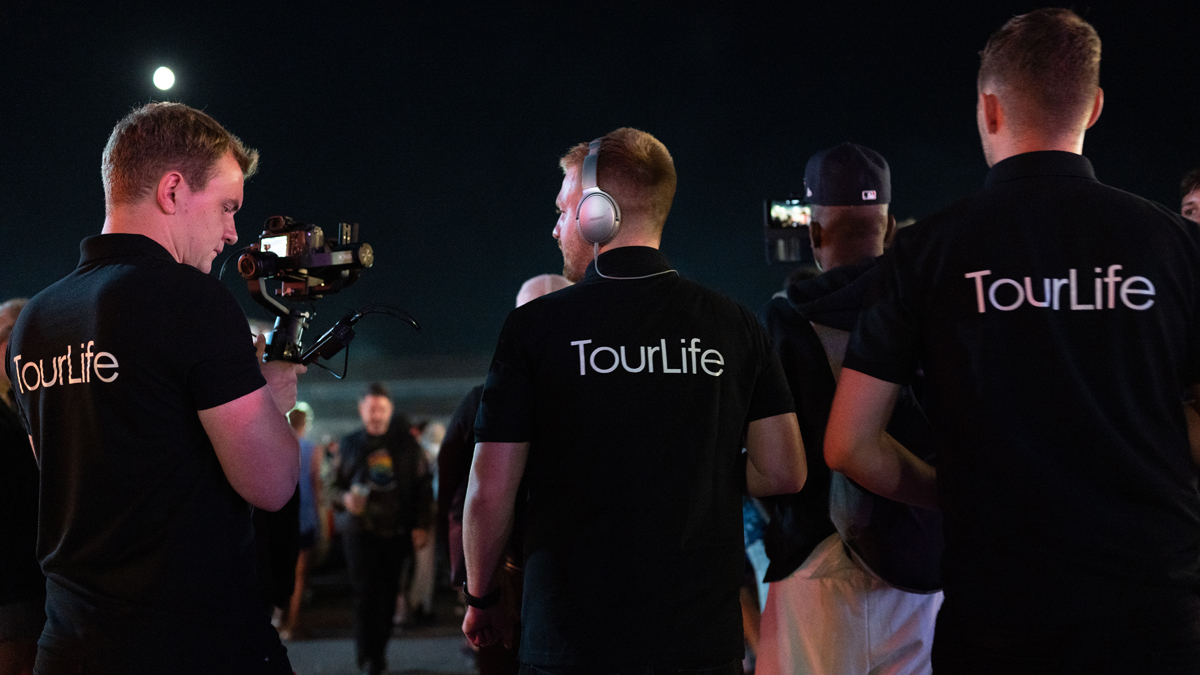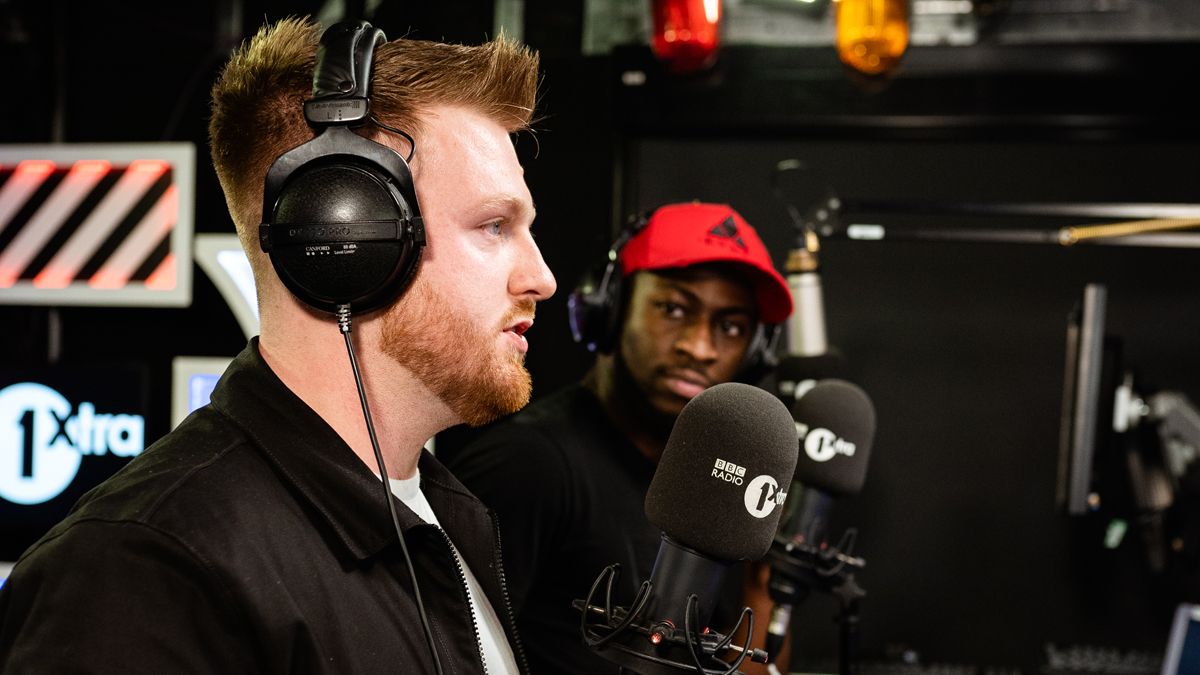Can technology help save live music, and what’s the future of gigs and festivals?
“I think we are going to see some major positive changes within the industry,” says tour organiser Harry Parslow

Want all the hottest music and gear news, reviews, deals, features and more, direct to your inbox? Sign up here.
You are now subscribed
Your newsletter sign-up was successful
After four months of silence for live music events, restrictions around the world are gradually being lifted and small concerts are starting to happen.
However, with the worry of secondary spikes in Coronavirus and local lockdowns happening across the globe, the future of the touring band is still uncertain.
Various solutions have been put forward, including the drive-in gig; perhaps not the live experience we are all yearning to return to, but at least it gets us out of the house and in front of our favourite musicians. However, Live Nation recently put a stop to plans for its Utilita Live From The Drive-In gigs, so where does that leave us?
The relatively new player on the live scene, TourLife, might just have the answer. For five years it has offered 'the complete touring package' for artists including The Game, Xzibit, Annie Mac, Charlie Sloth, Danny Howard, Defected Records, Ministry of Sound and more.
Like most live event companies, TourLife has taken a hit over the last few months, but the company's founder, Harry Parslow, has a unique insight into the world of touring and how several scenarios might play out in the coming months. And it turns out that the future of live music might well be brighter than we think…
What is your background in live events and music?
“I went to my first concert when I was 14 that my gran bought me tickets for! It was Xzibit, the rapper, a huge US star. I didn't realise how things worked and started queuing six hours before it even started.
Want all the hottest music and gear news, reviews, deals, features and more, direct to your inbox? Sign up here.
“Just being there so early I saw how things worked - the staff, the security, the merch, the manager and the tour buses turning up and some of what goes into making a tour happen. It just sparked something in me and I just thought 'what a cool job!'
“I ended up studying media at college and started creating behind-the-scenes touring films and interviewing artists. I was contacting management companies and offering my services and ended up on tour for a month with Bowling For Soup's Jaret Reddick and his side project People On Vacation.
“I realised that there was so much more to touring and live events - from the merchandise printing to the security, all those different roles - but every single one was handled by a different company. That's where the first idea for TourLife came into play - me thinking 'how could this be easier and more streamlined?'
“It quickly grew into the umbrella company that I envisaged covering everything from tour management to meet and greets, photography to merchandise, and we have since worked with some big names including Radio One stars Annie Mac and Danny Howard, T-Pain and even Xzibit for both his US and European tours.”

What is the current situation regarding live music and events in the UK?
“The mood was positive with the Live Nation drive-in venture [featuring artists including The Streets and Gary Numan playing drive-in concerts] and other social distanced festivals, but now Live Nation has cancelled it because of the local lockdowns which was a let down but understandable - safety comes first.”
How is TourLife adapting to the current situation?
“Last year, purely by luck, we decided to reinvest a considerable amount of what we made into live streaming equipment, so we've been focussing on things like DJ streams and having DJs come to our studio with plug-n-play kit so we haven't needed large staff numbers at all. We've had Island Records do a big live stream and people like the DJ James Hype.”
So you see live streaming gigs as a possible 'live' future?
“I do firmly believe that you still can't beat a live performance, so I think we are safe knowing that they will return. Going to a concert, meeting new people, going out for drinks before and making a day of it is so important. Zoom can't compete with that, either for the artist or the fan. However, live streaming is a great way of bringing a musician's experience to their fans on a global scale, and from the audience's perspective, they can still get to enjoy their favourite artist while being in the comfort of their own home.
“Pandemic or no pandemic, musicians and bands have a deep-rooted passion to engage with an audience. Whilst many took to social media to connect with fans during lockdown, as the social distancing rules have progressed, we’ve seen a huge number of requests from artists to take their virtual offering to the next level.”
So how does a live streaming gig work?
“We have two key principles. Firstly, it is essential that the experience is as easy for the musician as possible to ensure they can focus on the artistry; secondly to make sure the experience is rewarding for both the performer and the fans.
“We provide everything from the safe transportation of the artist and their band to the studio, through to working closely with them and their management to create a unique online event at our purpose-built space.
Pandemic or no pandemic, musicians and bands have a deep-rooted passion to engage with an audience.
“For those artists who require an even greater level of finish to their output, our own in-house creative team can also record these events ‘as live’ and then put them through post-production for broadcast at a later date. Our studio really is a blank canvas and can be used for any and all projects. These events can then be streamed live from our studio to multiple platforms with or without an additional paywall.”
Meaning the artists can actually make some money by playing live?
“Yes - for artists to make an income they can broadcast from our studio but sell virtual tickets. Then we do a virtual concert and even merchandising, so as the live stream happens merchandise comes up on the screen and it says 'this is for sale' and fans can order it online. There can even be a 'pay what you want' option if the band has a fanbase which is less affluent.”
In the medium term how do you think 'real' live events will return and with what kinds of guidelines in place?
“I fear we may not see the return of live events in the format we know and love until the beginning of 2021. Small audiences will be able to reconnect with musicians but large stadium tours we may have to wait a little longer for.
“This doesn’t mean that audiences won’t be able to enjoy live performances across a breadth of new channels and platforms such as live streaming and through a modified outdoor experience that we have seen since the announcement from the government this month.
“In terms of guidance, a number of associations, such as the Event Industry Alliance, have put together guidelines for event organisers and our industry is no stranger to stringent health and safety and risk assessments.
“What is clear is that the desire for the live experience has not dwindled. Punters are happy to flout government laws to attend illegal raves all over the country which, whilst I do not condone, should give the live event industry hope for a successful return.”
Do you think the drive-in gig idea still has legs?
“The US has had a drive-in movie culture in place for many decades, but to date that has never really taken hold in the UK. And is it great for musicians? Perhaps as an interim solution, but the physical barrier of the car may diminish the artist/audience connection and so I do feel that drive-ins are perhaps better placed for movies.
“That said, I don’t think we ever say 'no' to a new way of bringing audiences and musicians together. If the model becomes popular, and people are enjoying seeing movies and live acts, comedians and theatre shows in this format, then it's great to have another outlet for the arts.”
What about the idea of the socially distanced festival?
“On paper, it should work. However, as much as these events might allow people to have a glimpse into the unique UK festival culture, there is nothing that can match an awe-inspiring experience such as standing in front of the Pyramid Stage at Glastonbury. I think if I had to take the decision as a promoter I think I would probably be holding off, and focussing on the physical event in 2021, when hopefully we will see a return to what we know and love.”
So, long term, is the future of live music bright?
“Yes! And not only is it looking bright, I also think we are going to see some major positive changes within the industry as live streaming could well allow a secondary global audience to enjoy an event.
“I also think the whole industry is going to come away from this and reevaluate what the traditional touring model looks like. In recent years we have seen concert venues and festival organisers embracing more sustainable practices and artists exploring technological advances to connect with their audience and I think these conversations will continue.
“While COVID-19 will sadly mean a number of business casualties in our industry, there is strength in building a future together ready for the ‘next’ normal. The appetite from both musicians and fans is there - it’s our job to use some of the amazing innovations and technology to take our industry into the next chapter of development and growth.”
Andy has been writing about music production and technology for 30 years having started out on Music Technology magazine back in 1992. He has edited the magazines Future Music, Keyboard Review, MusicTech and Computer Music, which he helped launch back in 1998. He owns way too many synthesizers.
